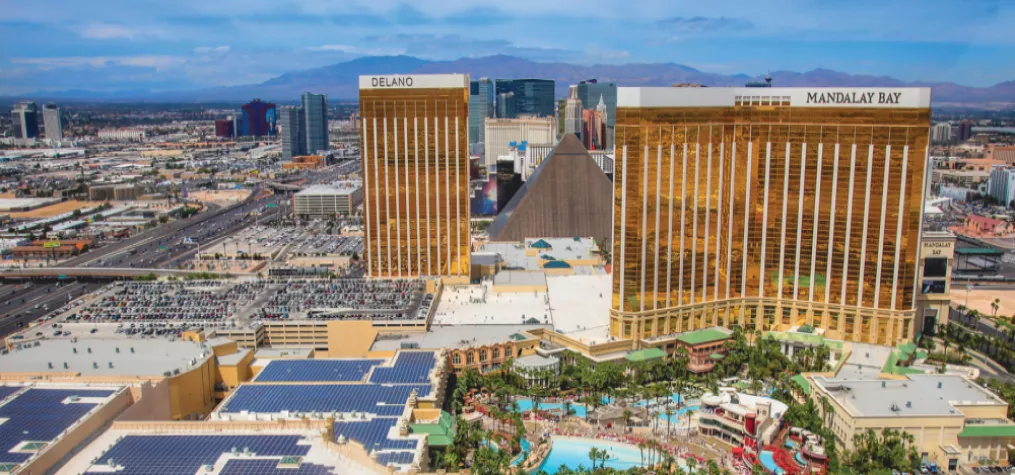Navigating Inflation: 4 Event Pros Share Their Experiences, Insights and Tips

The soaring inflation rates that have plagued the U.S., let alone some other countries around the world, may not be subsiding any time soon. The Labor Department reported that the September consumer price index (CPI) rose 8.2% over the prior 12 months, which is higher than what experts had predicted.
Increasing costs have taken a heavy toll on the business events industry, with inflation’s impact seen in the price of transportation, hotels, venues, food and beverage, guest speakers and several other aspects of events.
We checked in with four event professionals to find out how inflation has affected their events and planning process, what they have done to curtail costs while continuing to deliver exceptional experiences, and how they suggest others in the industry deal with the challenges.

Kim Gishler, executive director, Corporate Event Marketing Association (CEMA)
How has inflation affected CEMA’s events overall, and what are you doing to offset the nationwide cost increases when it comes to producing events?
At CEMA Summit 2022, Associated Luxury Hotels International (ALHI) CEO Michael Dominguez shared some sobering stats about inflation:
- U.S. wage growth is accelerating and driving inflation, and it’s not going away soon.
- Hospitality wage growth outpaces every other industry in the U.S.—and those rising labor costs impact hotel rates.
- Inflation is something we all have to factor into our event plans and budgets. This means we need to have intelligent, realistic conversations about how it will impact 2023 budgets.
With this backdrop, CEMA has done well in managing live events this year. There’s been tremendous transparency, collaboration and creativity in designing and delivering our Study Tours and CEMA Summit. I’d also say that continuing our virtual events—webinars and CEMA Connects sessions, in particular—has allowed us to deliver great educational value at lower cost.
Like everyone, we’ve looked for opportunities to offset cost increases, but our emphasis has been on working together in delivering the best possible experience within realistic budget parameters.
What specific areas of your events have been most impacted by rising inflation, where have you cut back, and how have you made up for those cutbacks to avoid negatively impacting the attendee experience?
Just about every area has been affected—hotel room rates, meeting space, F&B costs, air fares and production. We reduced costs in a number of ways: negotiating lower speaker fees, including discounts in our catering budgets and being more efficient with signage production and shipping.
F&B has been the most impacted because consumables costs have gone up drastically, and our event cost is tied directly to attendance. It’s a double-edged sword, but we always favor having more people attend, and we get creative in managing costs. For example, for Summit 2022, we met directly with the hotel chef and had a very transparent discussion about what he could do within our budget. He was very creative—and with new ideas that had never been done before. We let him go with those, and they turned out great. We also agreed to cost things like snacks for the break based on consumption versus guarantees, and we used refillable water bottles (that were sponsored) instead of bottled water. That was brilliant—reduce waste, eliminate cost and deliver sponsor value!
We continually push the boundaries of what is possible within restricted budgets. We’re lucky to have industry partners who are willing to invest in sponsoring and underwriting our event activities and activations. And since they’re all in the business, they bring incredible creativity and ingenuity to the table. For example, this year we relied heavily on our DMO partners to bring in exceptional local talent and experiential touches at a lower cost. The key is to tie every “ask” to a specific value they get from supporting CEMA.
How do you see inflation affecting your members, and is CEMA doing anything to help them address it?
Inflation isn’t going away, and I expect there will be lots of dialogue about budget realities when new event contracts are being negotiated. At CEMA, we don’t really prescribe any specific approaches or guidelines. What we do best is enable peer-to-peer discussions that allow our members to share best practices and insights—so that the best ideas and new approaches are available to the broadest number of event professionals. Another thing CEMA does very well is nurture transparency and trust among our community of event execs and industry partners. We don’t sugar coat things in our industry forums. We talk about challenges openly as peers and friends, and work together to explore solutions.
What are your top tips for event professionals to successfully cope with inflation while still pulling off successful and valuable events?
- Understand what drives value—for everyone in the chain—and work from that knowledge.
- Flip the script on budget narratives—focus on what you can create versus how to cut. Imagine and create new experiences and new ways to deliver tried-and-true experiences within your budget.
- Double down on truth, transparency, and trust—even if it’s uncomfortable.
How can event professionals best plan for the future in light of inflation concerns?
- Stay abreast of economic trends, look at the data, and make decisions based on how things really are versus how you wish they were.
- Start your budget conversations early—both internally with leadership and with vendors and partners to level set expectations.
Is there anything you would like to add about inflation that you feel is important for event professionals and the industry overall to keep in mind?
Event marketers have to look far ahead and be able to react with shorter planning timelines. Always remember that no matter how difficult things become in our industry, event execs know better than anyone how to turn every challenge into an opportunity to create a masterpiece.
 Tara Higgins, senior vice president, commercial, Encore; president, Hargrove
Tara Higgins, senior vice president, commercial, Encore; president, Hargrove
What specific areas of Encore’s and Hargrove's events have been most impacted by inflation, and what are you doing to offset cost increases?
We've seen time and proximity to events being big factors with inflation. As organizations are staffing back up to their full scale and size, they’re working in much shorter cycles for their event programs—three months out versus when they previously did up to six months or a year out. That has a big impact on labor and resources and how you plan. As a result, quality of experience is a key thing that we're talking to our customers about because we obviously want to do the best possible job, so we're trying to train people to go back into those normal planning cycles. A quote we give for a program is only valid for 30 days now because costs are constantly changing. I think this is our reality for 2023. If we get back to longer planning cycles, we can lock it down, start guaranteeing certain things and book the team and talent required to help control those costs.
Additionally, the cost impact of things like transportation has been a huge thing this year. We have regional production centers where we have equipment and people, and that has been really effective in trying to balance customers’ budgets, as opposed to them having to transport an exhibit booth across the entire country. The cost of fuel can change the budget tremendously.
Another area that has been impacted is food and beverage. It’s often a main part of event budgets. We’ve done a lot of research on food prices, and if you look at things like eggs and chicken, which have increased 28% and 32%, respectively, and bread, which has gotten high as well because of the cost of wheat and grain right now, that’s where customers are really seeing massive increases in costs. Based on all of our research of elements that have impacted the event industry—from fuel to food and beverage to the labor force and beyond, we worked very hard on pricing and did everything we could to think about doing things differently to come up with a fair pricing strategy for our customers while still looking after our team members as the cost of living increases.
What are some of things you are doing to help clients strategically deal with rising costs and meet their budgets, while benefitting their bottom line and attendee experience?
We always try and get into an earlier planning cycle. First of all, it’s understanding the purpose of the event and what they're trying to achieve. And then we can make recommendations. It could be in the equipment or the production, it can be in content assets and how we create them. If you look across a portfolio, you capture assets, and you think about future events. You may have a slightly larger upfront cost, but it’s not looking at one budget. It’s about further extended value. What they're seeing as the benefit is that you can reach four or six or seven programs through the next event cycle because they have their executives, speakers or other key people they want to capture there at one event. So we do all of that, and then we edit it for the purpose of future events, but you're not setting up that studio and camera team multiple times. It’s also the same with digital assets. Again, if we know what other events we're solving for, we can actually align our teams more effectively in producing some of those. We've found ourselves getting more creative with how we use our resources, if we understand the upfront objectives of what a customer is trying to achieve across one event or a series of events, where we think that we can balance those budgets more effectively.
What are your top tips for event professionals to successfully cope with inflation while still pulling off successful and valuable events?
I think it's about utilizing your partners in the way you design events. It’s thinking how you can turn a cost conversation into a value-discussion training—how to make the best investment choices based on what return you're expecting to get. We have a full methodology of how we do that, how we engage with partners and subject matter experts that can help guide the process. I think everyone is challenged with the dilemma of building a successful event that meets the budget as costs continue to be volatile. That's where the partnerships are really key to be able to do that because things are changing so fast.
Another tip is thinking strategically about event design and how many elements come into play to produce them. For example, you can still have an awesome food and beverage experience. But maybe you don't do one breakfast or maybe you think about doing zero-waste food and beverage experiences, which also makes the event more sustainable.
 Liz King Caruso, CEO, techsytalk
Liz King Caruso, CEO, techsytalk
How has inflation affected your events business overall?
Inflation is impacting us all across the board. Clients are feeling the burn with their events, and we're also dealing with all kinds of staffing challenges and difficulties in our industry as a result.
What specific areas of your events have been most impacted by rising inflation, where have you cut back, and how have you made up for those cutbacks to avoid negatively impacting the attendee experience?
We are really seeing a huge uptick in the cost of events. For one client, their event cost is double what it was in 2019, even with all the same parameters! It's absolutely insane, and so we're seeing our clients cutting wherever they can without compromising on the experience, and more importantly, rethinking their strategy going forward. Many of our clients are still working on contracts that were negotiated pre-pandemic, but they are seriously reconsidering their budgeting moving forward. We're really focusing on helping them invest in smart virtual components to serve their larger audience and spend more attention to detail with in-person attendees to really make that the exclusive luxury experience.
Have you seen event tech impacted by inflation?
Yes. I think shrinking client budgets are also causing event tech companies to rethink—the money is not flowing the way many companies anticipated, especially toward virtual and hybrid, so I think that's why we're seeing a lot of shifting and layoffs. I don't foresee this as a long-term problem, but it's causing quite a headache for companies right now.
What role do you think event tech can play in offsetting the rising costs associated with events?
We've got to think about scalability. I think a lot of event tech companies were foolishly thinking that large event budgets were going to swing toward virtual and hybrid, and they started building and pricing for a very expensive product. That's not what we're seeing, and companies have to focus on fair price and consistent service. They don't have to be cheap but doing a few things really well for a reasonable price is going to pay off faster than a bulky, expensive service that can't deliver.
What are your top tips for other event professionals to successfully cope with inflation while still pulling off successful and valuable events?
I'm giving them the same advice as our clients: You have to rethink your entire strategy. Just because it worked before doesn't mean it's going to work now. And by before, I mean 2019 to 2021. In-person events have changed. Virtual has changed. Hybrid is just now being defined. What do you really want to give your audience as value, and what do you need to make that happen? Start there and design from scratch.
How can event professionals best plan for the future in light of inflation concerns?
Negotiate well and think long-term. Open communication with your partners will help you save where you can and put you in a better position for the future.
Is there anything you would like to add about inflation that you feel is important for event professionals and the industry overall to keep in mind?
I don't think this is a small bump in the road. I think we're going to see these rising costs and staffing shortages for a long time to come. Human behavior has shifted dramatically, and it's going to take a while for things to find their level point again. My best advice is to focus on value. What can you offer your clients that no one else can? And how can you focus on that one thing to deliver value without breaking the bank because the massive budgets aren't going to reappear anytime soon. That being said, tight economies are the breeding ground for amazing innovation and growth. Buckle up and get ready for a great ride!
 Carrie Abernathy, lead meeting planner, industry engagement, Altria
Carrie Abernathy, lead meeting planner, industry engagement, Altria
How have you coped with rising inflation, where have you cut back, and how have you made up for those cutbacks to avoid negatively impacting the attendee experience?
Right now, we are starting to budget for 2023 events and thinking ahead on how to stretch the budget with changing event costs. We haven’t made cutbacks yet, but we are looking at the “have to haves” versus the “nice to haves” with cuts in mind should costs negatively impact us next year.
What are your top tips for other event professionals to successfully cope with inflation while still pulling off successful and valuable events?
Value-adds can come in many shapes and sizes. Not all value-adds are tangible/material. Think about how you can add value to your meetings outside of flash or glamour. Can you offer attendees virtual access for a year to a new virtual program or digital goods?
Is there anything you would like to add about inflation that you feel is important for event professionals and the industry overall to keep in mind?
Keep your eye on the Department of Labor statistics on travel/event industry impact and inflation rates. You can use these statistics for the hard conversations with C-Suite executives that may come up in the future. I am sure many finance departments will offer the same budget as the past or a standard 3%, but most likely that won’t cut it in the future. You need to be prepared with hard statistics on how hotel rates and costs for food and beverage, audiovisual and travel are inflated much higher than years past to stake your argument for additional funding for the same level of service.
Don’t miss any event-related news: Sign up for our weekly e-newsletter HERE, listen to our latest podcast HERE and engage with us on Twitter, Facebook and LinkedIn!


Add new comment